ReefLog: bridging depths – citizen science for marine life conservation in India
This piece shares the contours and challenges of implementing a citizen science project for marine life conservation in India.
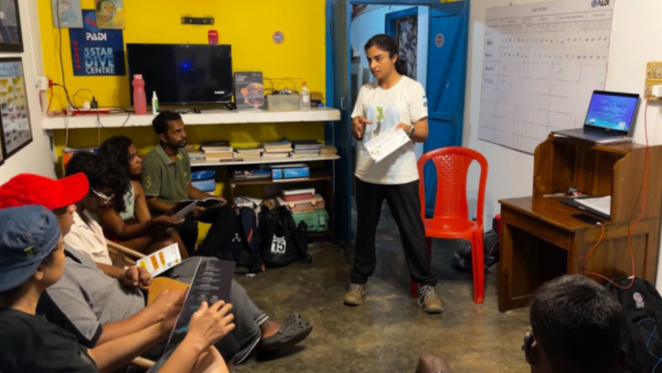
The history of conservation in India and elsewhere demonstrates a consistent truth: initiatives that engage citizens and communities tend to have deeper and longer-lasting impacts than purely research-focused and data-centric projects. Globally, citizen science initiatives across various taxa have demonstrated the power of community-driven data collection, often influencing policy decisions.
From the lush seagrass beds of Palk Bay to the vibrant coral reefs of the Andaman and Nicobar Islands, India’s coastal waters host a stunning array of habitats. These ecosystems support charismatic species like whale sharks, green turtles, and dolphins, as well as ecologically critical fish, like parrotfish, barracuda and groupers.
Despite this diversity, much of India’s marine biodiversity remains undocumented. There is limited spatial and temporal data, presenting both opportunities for discovery and conservation challenges.
Many reef systems have likely suffered severe degradation due to human activities over recent decades. To effectively implement conservation strategies in these vital habitats, it is imperative to first understand their current condition.
Recognizing this need, Dakshin Foundation conceptualized ‘ReefLog’ in 2015 as a citizen science program designed to connect recreational SCUBA divers with marine science in India. By encouraging divers to participate in ecological monitoring, ReefLog actively involves certified recreational SCUBA divers in collecting valuable data on reef species.
Currently active in the Andaman Islands, this citizen science initiative seeks to generate long-term datasets essential for conservation. It also aims to foster ecological awareness among those who witness the underwater world’s fragility and beauty firsthand.
These contributions extend beyond what scientists and researchers alone can achieve. Regular monitoring also enables the early detection of sudden shifts in reef conditions, which can signal the need for rapid conservation interventions.
In India, where marine biodiversity documentation began relatively late, CitSci initiatives like ReefLog fill a crucial gap
ReefLog focuses on monitoring key indicators of reef health, such as fish and invertebrate population counts and species diversity. The abundance (or lack) of certain species gives us crucial data on the health of a particular ecosystem. These species often play a crucial role in the marine food web by controlling the numbers of their prey or keeping algal cover on the reef in check.
To make data collection accessible, our team—a collaborative group of biologists, conservationists, divers and artists—has developed easy-to-use underwater survey slates with illustrations of fish and invertebrates. This is complemented by educational materials.
Twelve species of fish and invertebrates from each geographic region have been carefully chosen. This selection is based on their trophic level, ecological importance, and ease of identification, even for novice divers. With the help of these, divers document their observations. These can later be uploaded to the ReefLog website, reeflog.org.
Every diver is a conservationist, and every dive can contribute to ecological research
The success of ReefLog hinges on its ability to create a sense of ownership among participants. Divers, who already rely on healthy reefs for their occupation or hobby, are natural allies in conservation.
Many dive shops readily embrace the initiative. They recognize that their livelihoods depend on the health of coral ecosystems. This mutual dependency has fostered an atmosphere of collaboration, with dive shops often becoming ambassadors for the program.
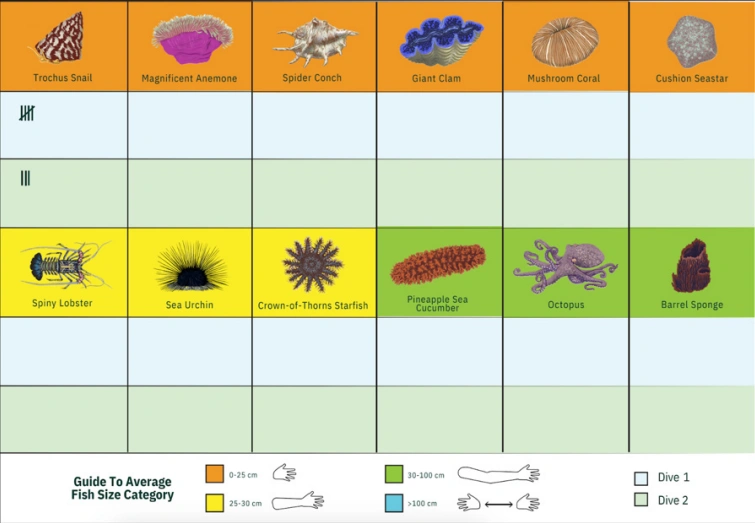
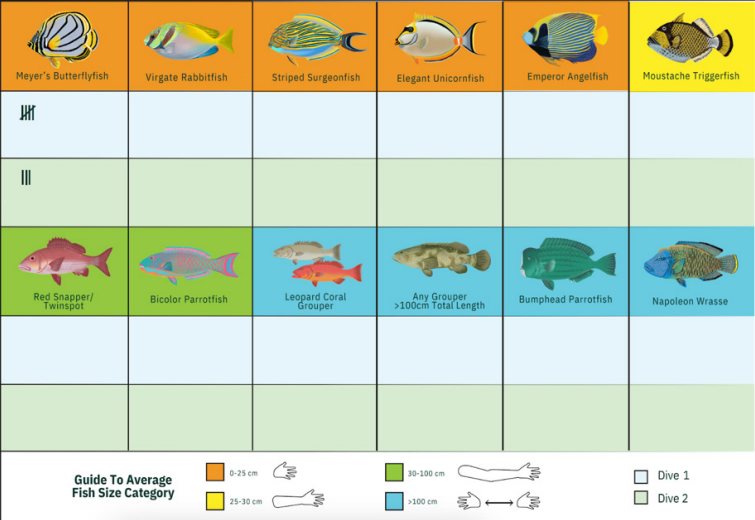
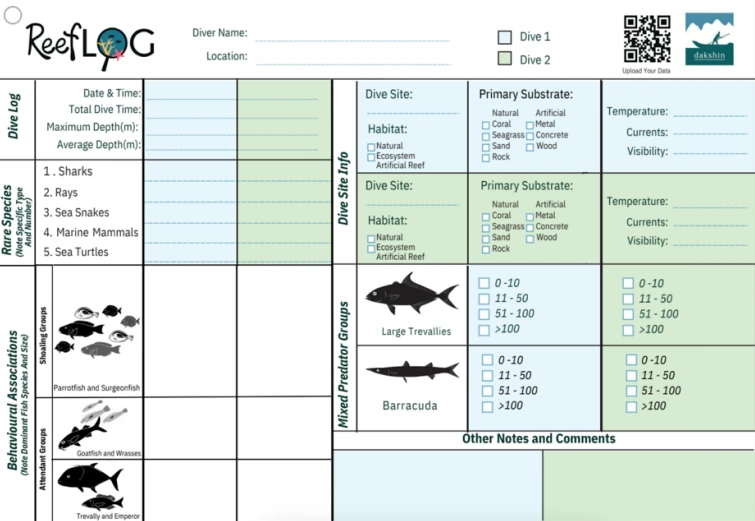
One of the most inspiring aspects of this initiative has been the firsthand verbal accounts shared by seasoned divers and fishers. Their observations of reef changes over decades, though undocumented, provide invaluable context for our monitoring efforts.
During a visit to a dive centre, a diver with 28 years of experience recalled, “I remember this site being full of vibrant staghorn corals before the 2004 tsunami. Now, all I see are large barrel sponges taking over.”
Similarly, another diver observed, “We used to spot only five or ten giant snappers here. But now there are hundreds. It’s like the whole ecosystem has shifted.”
Through periodic reports, ReefLog aims to incorporate such narratives into a scientific framework. This will help in preserving these insights for future generations.
The more people engage with and rely on an ecosystem for their activities, the more likely they are to take an active role in preserving it
The program has garnered support from dive shops and the water-sports community. However, it is not without its challenges.
For instance, there is a learning curve for both dive instructors and recreational divers to carry out a ReefLog dive. Additionally, the process of data submission relies on participants to upload their observations post-dive. This cannot be completed in real time during dives. This is unlike terrestrial citizen science programs.
Ensuring consistent and uninterrupted data entries has been an ongoing challenge. This is compounded by the voluntary nature of participation.
Another major limitation is the accessibility of diving itself. This remains an expensive activity. This restricts ReefLog’s reach to a relatively small demographic.
We collaborate with dive shops and use educational tools like our training manual to train participants on survey skills and the rationale behind citizen science. In the process, we aim to maximize participation. We also try and ensure that divers understand the value of their contributions to marine conservation.
Since ReefLog relies on participants with a specific skill such as diving, we need two levels of engagement. The first level is with dive companies and professionals who act as facilitators. The second level is with recreational divers who are the end participants.
The program also uses outreach efforts like webinars, articles and educational materials. Through these, ReefLog serves as a stepping-stone for broader involvement in marine education and conservation.
Every dive matters, and no contribution is too small
India’s coral reefs and marine ecosystems face mounting threats from climate change, pollution and overfishing. This underscores the urgent need for innovative conservation efforts.
Citizen science initiatives like ReefLog can play a pivotal role in this context. They can help in addressing these challenges by fostering a network of engaged stakeholders dedicated to preserving marine biodiversity.
ReefLog leverages the enthusiasm and skills of the diving community. In the process, it helps to transform recreational diving into a meaningful opportunity to document marine life. It generates critical long-term datasets and builds a robust foundation for informed conservation strategies.
Participation in ReefLog facilitates data collection. It also instills a profound sense of ecological stewardship among participants. This is a critical step toward ensuring the sustainability of their livelihoods.
For many divers, the initiative serves as a gateway to marine conservation. It encourages them to give back to nature after having benefited so much from its bounty. In this way, ReefLog bridges the gap between scientific research and community-driven conservation, transforming individual contributions into collective impact.
With continued collaboration and expansion, ReefLog envisions a future where citizen science becomes a cornerstone of marine conservation in India, ensuring the resilience of these ecosystems for generations to come.
We invite every diver to join us in safeguarding our underwater heritage—one dive at a time.

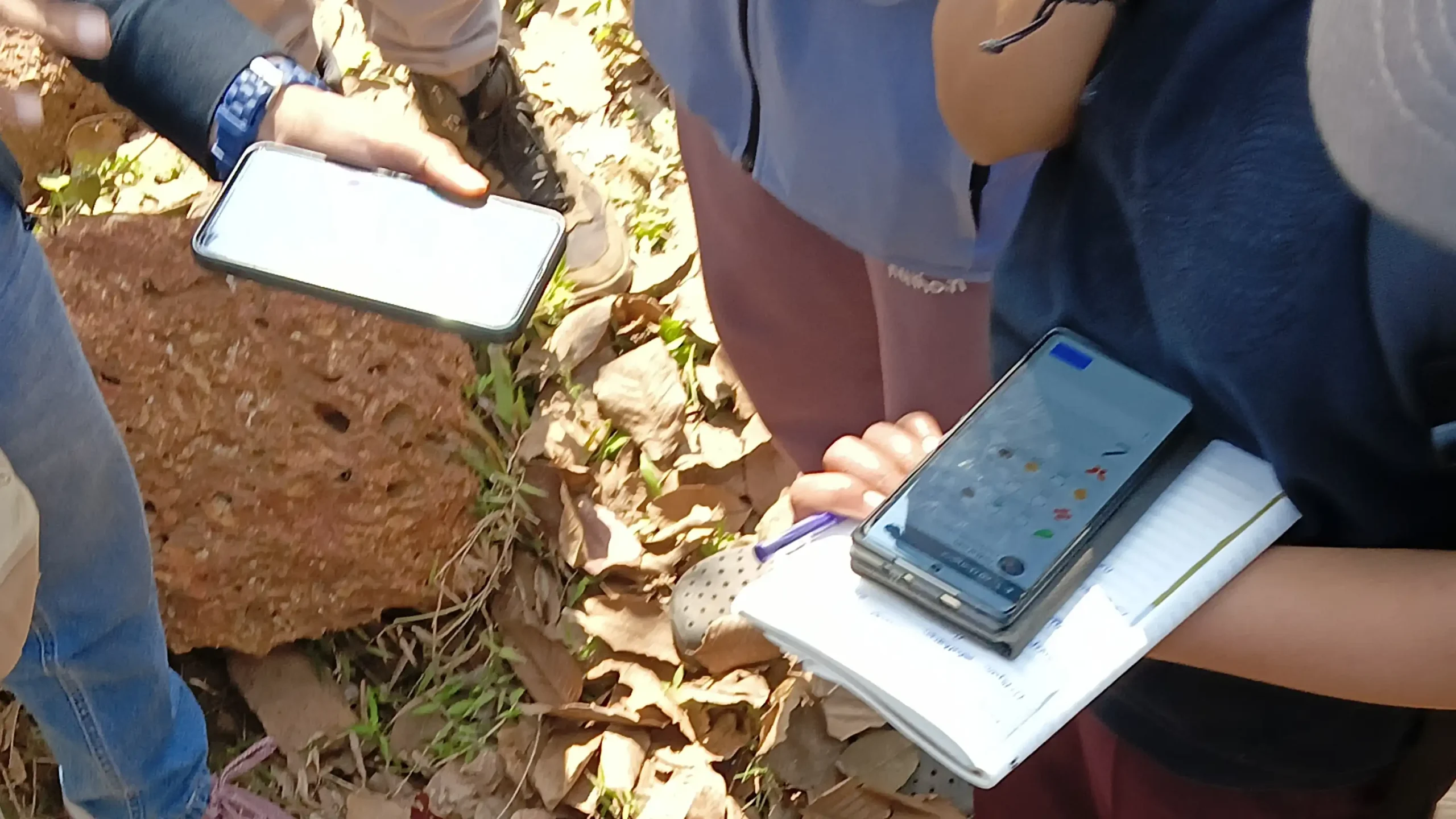
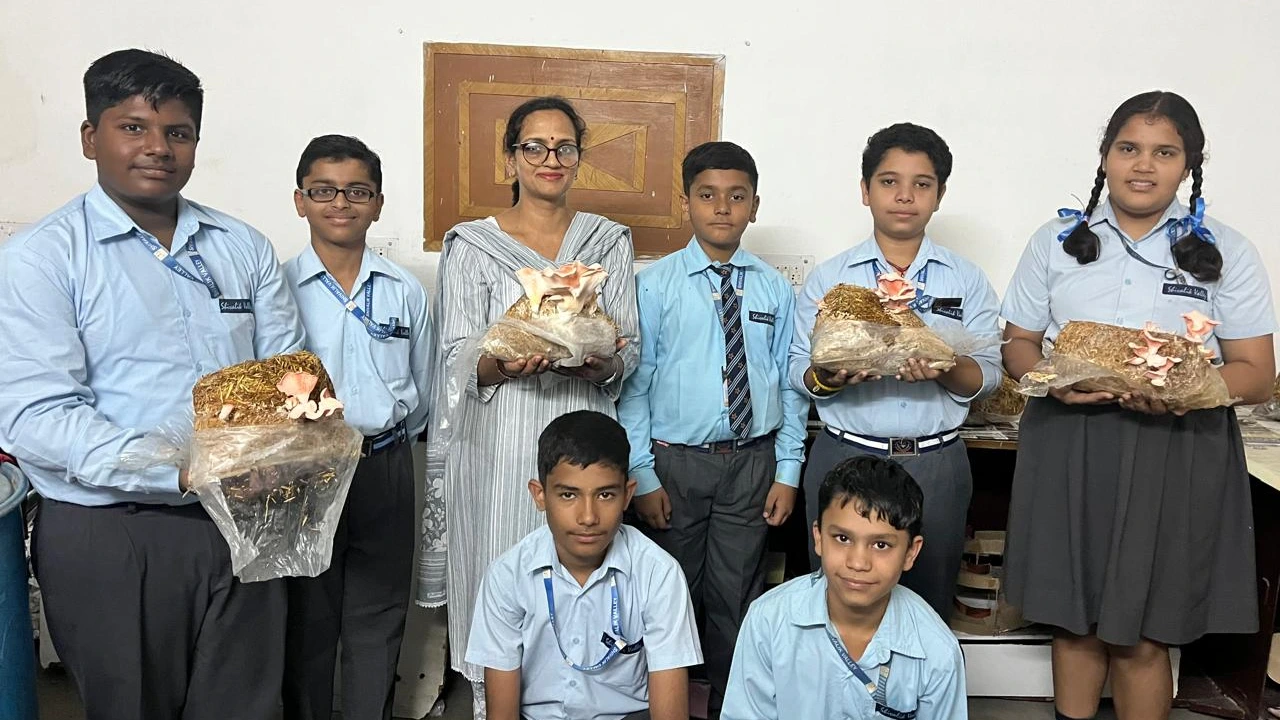
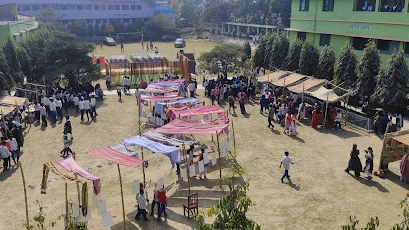
No approved comments yet. Be the first to comment!